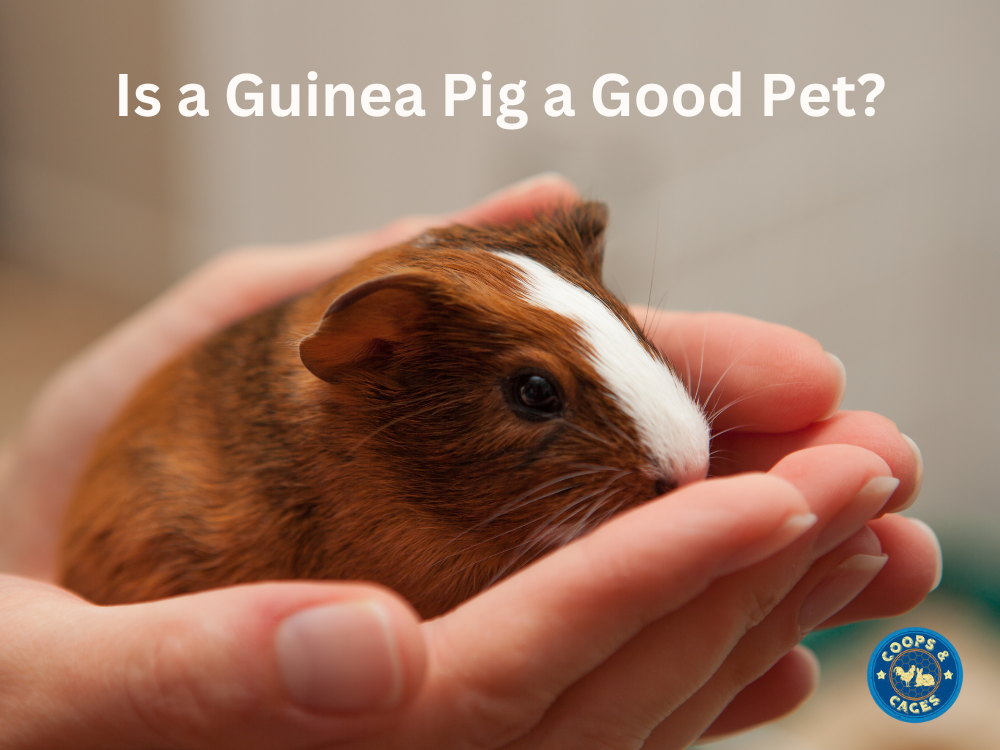FAQ's, Guinea Pigs
Is a Guinea Pig a Good Pet? Benefits and Comparison
Is a guinea pig a good pet? You’re in the right place to get all the essential info.
Diving into the unique world of guinea pigs, we’ll uncover their appealing qualities and maintenance requirements. We’ll also discover the reasons guinea pigs cost more than you expect and bust some myths.
Is a guinea pig a good pet? Let’s find out together…
Understanding Guinea Pigs as Pets
Famed for their gentle demeanour and vibrant character traits, guinea pigs (affectionately known as “cavies”) make wonderful companion animals.
Originating from the Andes, these small creatures have been domesticated for thousands of years.
Their sociable nature means they thrive in pairs or groups but require daily interaction with humans too.
We don’t recommend guinea pigs for families with kids under 8 as cavies fear loud noises and there is a risk of children dropping them.
Caring for guinea pigs goes beyond providing a cosy enclosure; it encompasses understanding their dietary needs which consist largely of hay, fresh vegetables, and a small amount of pellets.
This diet ensures not only their physical health but also dental care since their teeth constantly grow throughout their life.
You have the option of either buying from a breeder or adopting guinea pigs from local animal shelters.
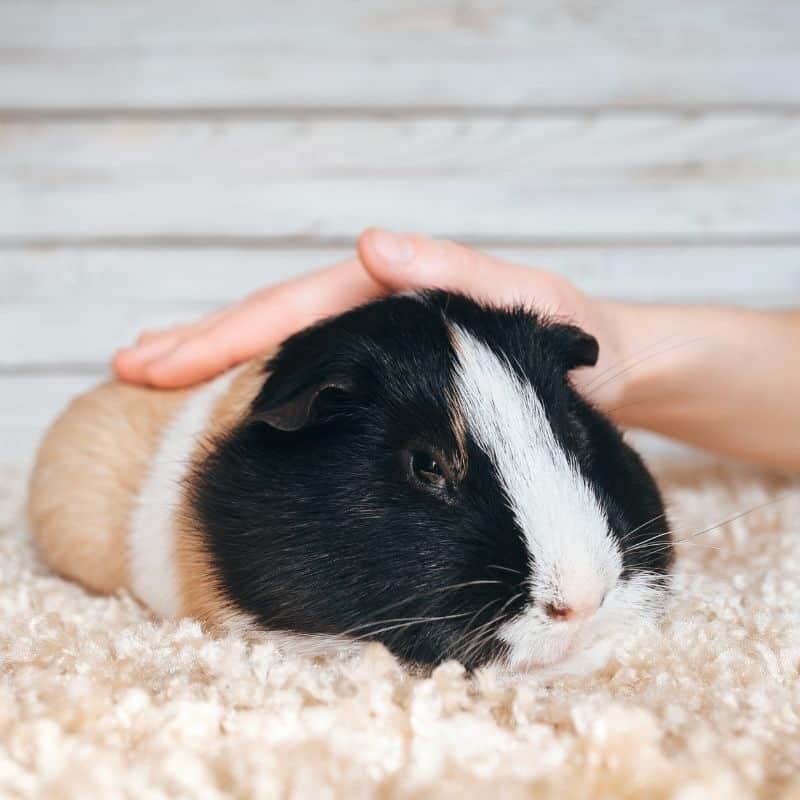
Is a Guinea Pig a Good Pet?
Guinea pigs, with their sociable nature and relatively low maintenance care, make fantastic pets for both the young and old.
Unlike some other small animals that might prefer solitude, guinea pigs thrive on human companionship. This makes them not just pets but part of the family.
Guinea pig day-time activity pattern aligns well with human schedules.
They’re most active during the day which means more interaction time between you and your pet when you’re most likely to be awake too.
Guinea pigs are great for helping young children learn responsibility without parents having to commit a lot of time or money to a dog or cat.
Jordan’s Tip:
Guinea pigs are social animals and are happiest with a buddy; keeping one alone could lead to loneliness and boredom.
Comparing Guinea Pigs with Other Small Animals
When choosing a small pet, guinea pigs often come up as a top choice due to their friendly nature and relatively easy care requirements. Guinea pigs live around 6 years while pet mice and rats live around 3 years.
Their long-lasting companionship is a benefit for most owners however can be a challenge for those who have regular lifestyle changes.
Like most other small animals, they prefer to live in small groups of their own kind. A solitary guinea pig is at risk of experiencing loneliness and boredom.
Guinea pigs are quiet however do make more noise than other small pets – you may hear your guinea pig wheeking, whistling and teeth chattering from time to time.
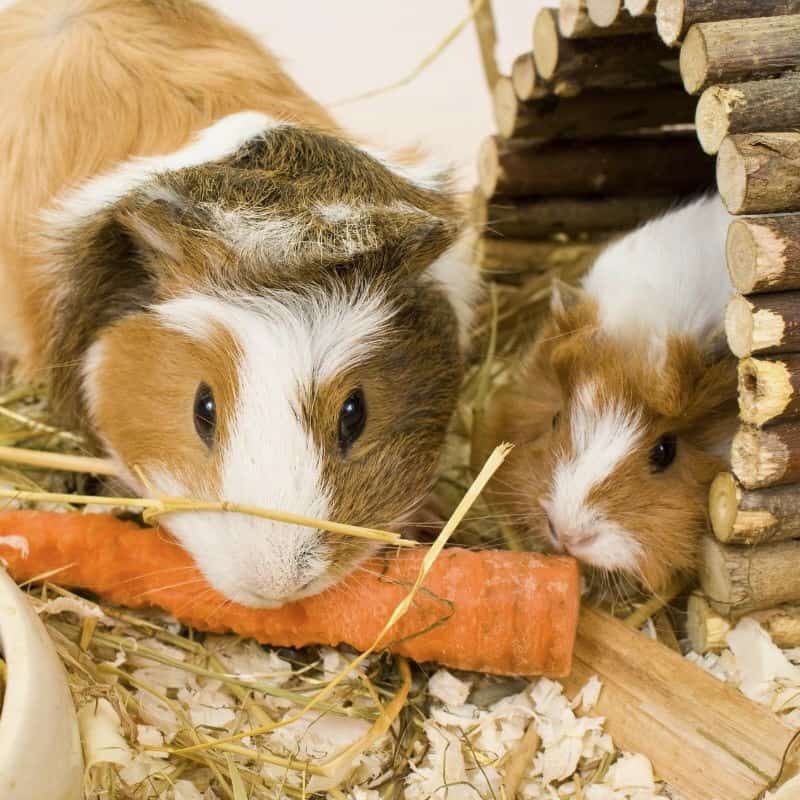
Common Misconceptions About Guinea Pigs
Guinea pigs are often underestimated as pets. Many think they’re low-maintenance or just for kids, but these furry friends have a lot to offer.
Their Care is Easy
While they don’t need walks like dogs, guinea pig care goes beyond basic feeding. Ensuring a balanced diet rich in vitamin C is crucial since they can’t produce it themselves.
Guinea pigs flourish when they have room to roam and regular engagement, all within the confines of a tidy habitat. Their hutch will need to be cleaned weekly to avoid stinky living quarters.
Short-haired breeds only need once-a-week brushing while long-haired breeds require daily grooming.
They Don’t Need Much Space
A common myth is that guinea pigs can live happily in small boxes from pet stores. In reality, these spaces are often too cramped for them to exercise properly or exhibit natural behaviours.
Adequate housing should allow room for separate sleeping areas and plenty of playtime in a run daily. Coops and Cages sells high-quality hutches that give your guinea pig the room it deserves.
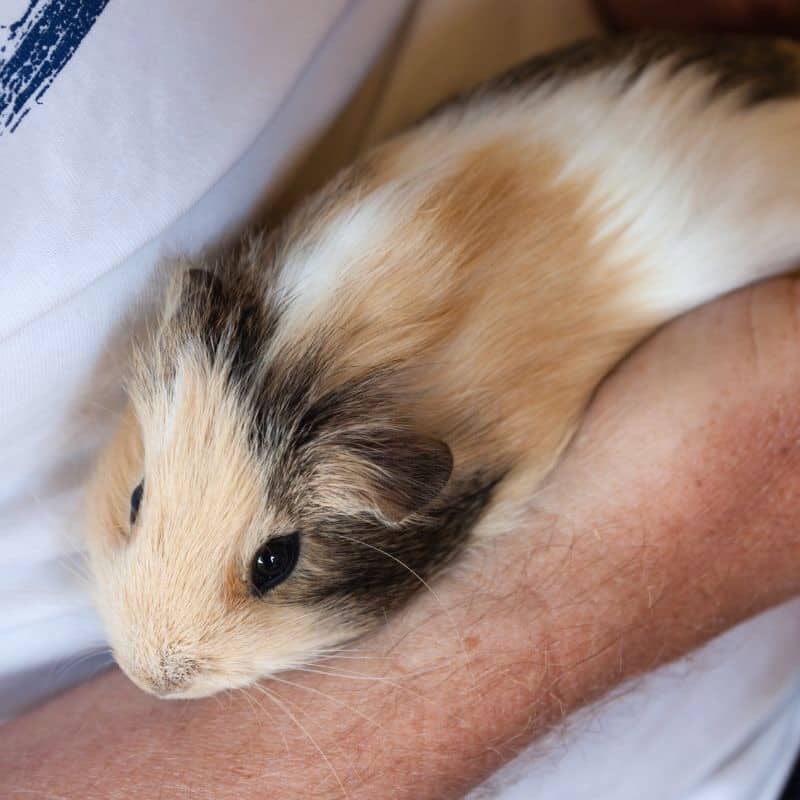
Financial Aspects of Guinea Pig Ownership
Welcoming a guinea pig into your home isn’t just about providing love and care; it also involves financial commitment. Let’s break down the costs you’ll likely encounter.
Purchasing Your Guinea Pig
Most guinea pigs cost between $20-40. However, some breeds can cost more. The most significant setup cost is buying a hutch or large cage, which can cost $100-600 depending on size and quality.
Other setup costs include buying food dishes, water bottles, hideouts, toys and grooming supplies (about $10 each).
Ongoing Care Costs
Food is the biggest ongoing expense. A guinea pig’s diet is primarily made up of grass hay. It is much better value to buy a bulk bale of hay from a farm supply store rather than buying small bags at pet stores.
Hay types can vary in cost – Timothy hay is the most expensive while oaten and meadow hay are much more affordable. Guinea pigs require vitamin-c enriched pellets and fresh veggies daily.
You will also need to pay for disposable bedding, such as wood shavings, straw or shredded paper. Owners will need to budget for vet visits. Guinea pigs are prone to cysts, foot problems and urinary tract infections.
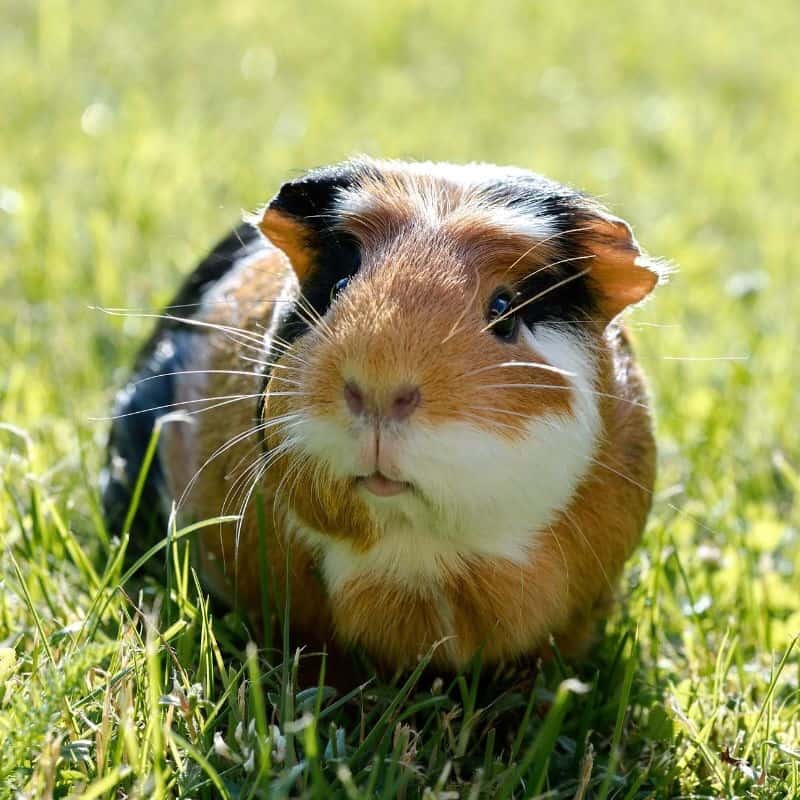
Frequently Asked Questions
Is A Guinea Pig Easy To Take Care Of?
Yes, guinea pigs are low maintenance compared to dogs and cats. You need to feed them daily, clean their cage weekly, and give them some love.
Do Pet Guinea Pigs Like To Be Held?
Most guinea pigs enjoy a gentle cuddle. It makes them feel safe. Just approach slowly and handle with care.
Are Guinea Pigs Friendly Pets?
Sure are! With patience and regular interaction, these little mates become quite sociable companions.
Jordan’s Wrap
So, is a guinea pig a good pet? Absolutely. They bring joy and companionship into your life, asking for just a bit of care in return.
Guinea pigs require a healthy diet, spacious housing, to be groomed regularly plus daily human interaction. Their level of care is similar to other small pets however their lifespan is double that of pet mice and rats.
Don’t let common misconceptions steer you astray – guinea pigs require attention, cleaning on a weekly basis, and adequate space. While guinea pigs are cheap to buy, consider setup costs and ongoing expenses. It’s an investment into your happiness as much as theirs!
Here at Coops and Cages, we not only provide quality hutches but also focus on teaching owners how to care for their pets.
Visit our Guinea Pig Learning Centre here for helpful blogs and tips.



